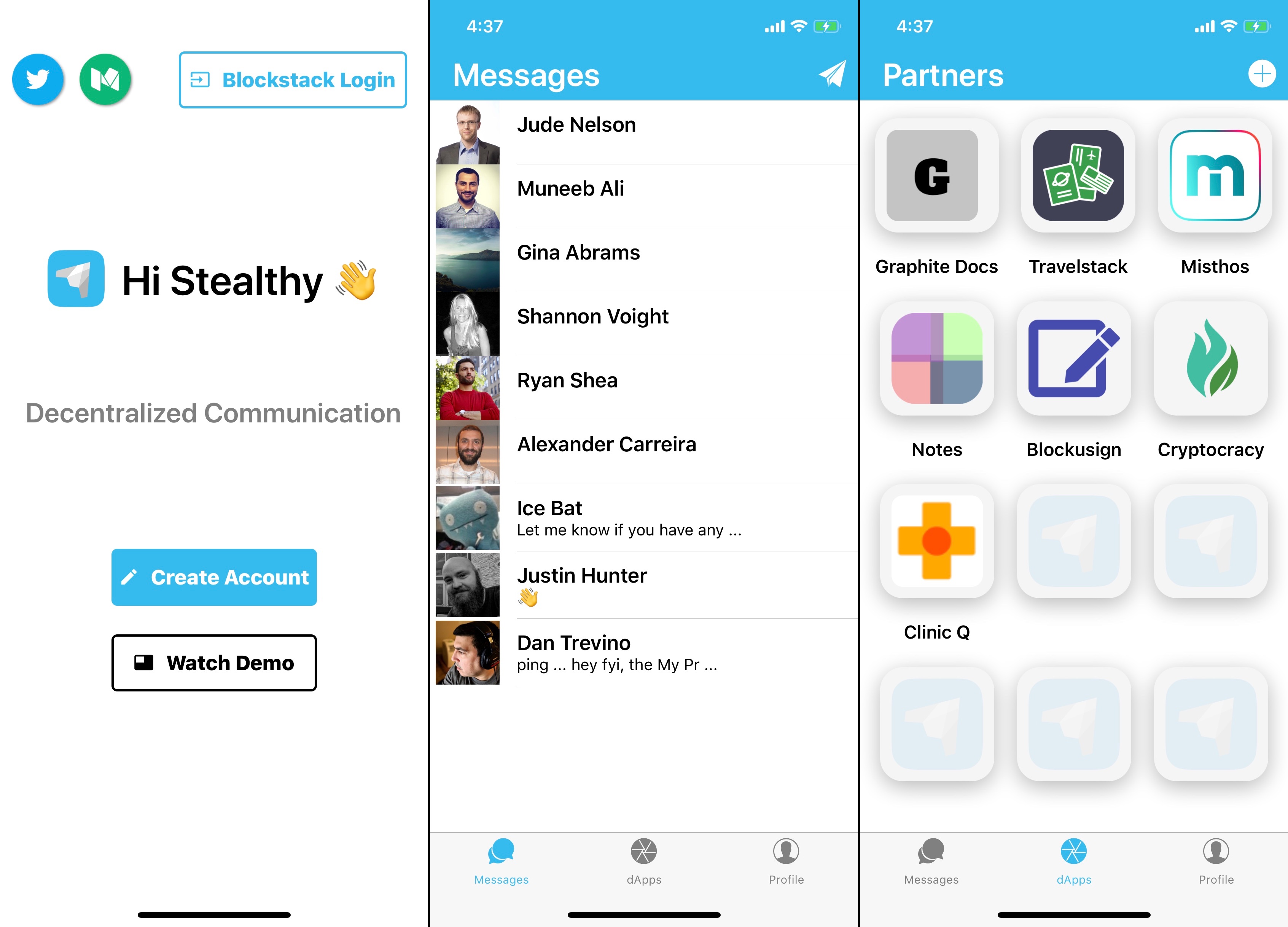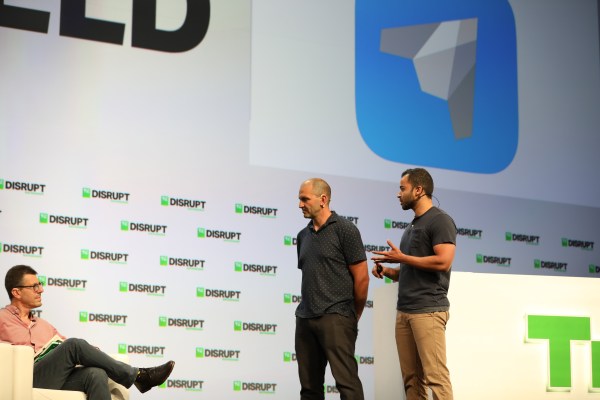Meet Stealthy a new messaging app that leverages Blockstack’s decentralized application platform to build a messaging app. The company is participating in TechCrunch’s Startup Battlefield at Disrupt SF and launching its app on iOS and Android today.
On the surface, Stealthy works like many messaging apps out there. But it gets interesting once you start digging to understand the protocol behind it. Stealthy is a decentralized platform with privacy in mind. It could become the glue that makes various decentralized applications stick together.

“We started Stealthy because Blockstack had a global hackathon in December of last year,” co-founder Prabhaav Bhardwaj told me. “We won that hackathon in February.” After that, the #deletefacebook movement combined with the overall decentralization trend motivated Bhardwaj and Alex Carreira to ship the app.
Blockstack manages your identity. You get an ID and a 12-word passphrase to recover your account. Blockstack creates a blockchain record for each new user. You use your Blockstack ID to connect to Stealthy.
Stealthy users then choose how they want to store their messages. You can connect your account with Dropbox, Amazon Web Services, Microsoft Azure, etc.
Every time you message someone, the message is first encrypted on your device and sent to your recipient’s cloud provider. Your recipient can then open the Stealthy app and decrypt the message from their storage system.
All of this is seamless for the end user. It works like an iMessage conversation, which means that Microsoft or Amazon can’t open and read your messages without your private key. You remain in control of your data. Stealthy plans to open source their protocol and mobile product so that anybody can audit their code.
Some features require a certain level of centralization. For instance, Stealthy relies on Firebase for push notifications. If you’re uncomfortable with that, you can disable that feature.

The company also wants to become your central hub for all sorts of decentralized apps (or dapps for short). For instance, you can launch Graphite Docs or Blockusign from Stealthy. Those dapps are built on top of Blockstack as well, but Stealthy plans to integrate with other dapps that don’t work on Blockstack.
“We have dapp integrations in place right now and we want to make it easier to add dapp integrations. If somebody wants to come in and start selling messaging stickers, you could do that. If you want to come in and implement a payment system to pay bloggers, you could do that,” Bhardwaj said. “Eventually, what we want to be is to make it as easy as submitting an app in the App Store.”
When you build a digital product, chances are you’ll end up adding a messaging feature at some point. You can chat in Google Docs, Airbnb, Venmo, YouTube… And the same is likely to be true with dapps. Stealthy believes that many developers could benefit from a solid communication infrastructure — this way, other companies can focus on their core products and let Stealthy handle the communication layer.
Stealthy is an ambitious company. In many ways, the startup is trying to build a decentralized WeChat with the encryption features of Signal. It’s a messaging app, but it’s also a platform for many other use cases.
A handful of messaging apps have become so powerful that they’ve become a weakness. Governments can block them or leverage them to create a social ranking. Authorities can get a warrant to ask tech companies to hand them data. And of course, the top tech companies have become too powerful. More decentralization is always a good thing.
